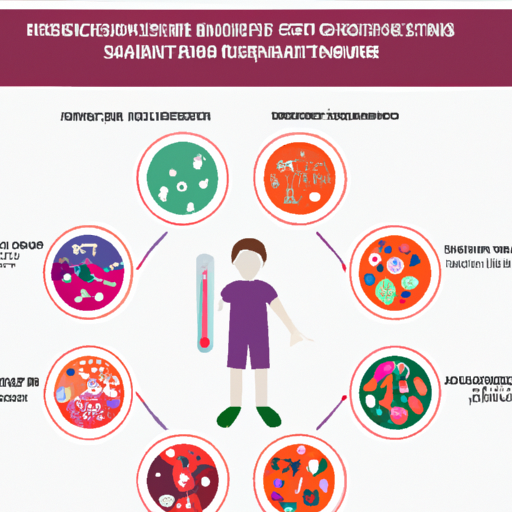This blogpost explores the challenges and opportunities in the rare diseases pharmaceutical industry, focusing on innovative healthcare solutions. We delve into the unique obstacles in diagnosing and treating rare diseases, the key players in the industry, and the strategies they have adopted to overcome these hurdles. The post further highlights the role of technology, patient advocacy, and regulatory authorities in shaping the future of this industry.
The Unique Challenges in Diagnosing and Treating Rare Diseases
Diagnosing and treating rare diseases present a unique set of challenges that set them apart from more common conditions. These challenges can be attributed to several factors, including limited knowledge and understanding of these diseases, a lack of effective diagnostic tools, and the high cost of developing treatments.
- Limited Knowledge and Understanding:
Rare diseases are often characterized by their low prevalence, making it difficult for healthcare professionals to gain extensive knowledge and experience in diagnosing and treating these conditions. This can result in delayed or misdiagnosis, leading to unnecessary suffering and potentially irreversible damage for patients. Additionally, the rarity of these diseases means that there is often limited research and clinical trials dedicated to understanding their underlying causes and developing effective treatments. - Lack of Effective Diagnostic Tools:
Another major challenge in the rare diseases pharmaceutical industry is the lack of reliable and specific diagnostic tools. Many rare diseases exhibit vague and overlapping symptoms, making it challenging for healthcare professionals to identify the condition accurately. The absence of standardized diagnostic tests further exacerbates this problem, as it delays the identification of the disease and hampers the development of targeted treatments. - High Cost of Developing Treatments:
Developing treatments for rare diseases is an expensive endeavor. The limited patient population, coupled with the complex nature of these conditions, makes it challenging for pharmaceutical companies to recoup their investments. Consequently, the high cost of developing and manufacturing drugs for rare diseases often leads to exorbitant prices, making them inaccessible for many patients. This issue highlights the need for innovative approaches, such as public-private partnerships, to facilitate the development and affordability of treatments for rare diseases.

An infographic illustrating the complexities in diagnosing rare diseases
Who are the Key Players in the Rare Diseases Pharmaceutical Industry?
Pharmaceutical companies:
Pharmaceutical companies play a vital role in the rare diseases pharmaceutical industry. These companies invest significant resources in research and development to discover and develop innovative treatments for rare diseases. They conduct clinical trials, obtain regulatory approvals, and manufacture these medications for distribution. Pharmaceutical companies often collaborate with academic institutions and other research organizations to enhance their understanding of rare diseases and accelerate the development of new therapies.
- Patient advocacy groups:
Patient advocacy groups are crucial stakeholders in the rare diseases pharmaceutical industry. These organizations represent the interests and needs of patients and their families who are affected by rare diseases. They work tirelessly to raise awareness, provide support, and advocate for improved access to diagnosis, treatment, and care. Patient advocacy groups also play a vital role in facilitating collaboration between various stakeholders, including patients, healthcare professionals, and pharmaceutical companies, to drive research and development efforts. - Healthcare professionals:
Healthcare professionals, including physicians, nurses, genetic counselors, and specialists, are essential players in the rare diseases pharmaceutical industry. They are responsible for diagnosing and treating patients with rare diseases and providing ongoing care and support. These professionals play a crucial role in identifying symptoms, conducting diagnostic tests, and recommending appropriate treatments. They also contribute to research efforts by participating in clinical trials and sharing their expertise to improve the understanding and management of rare diseases.In addition to these key players, regulatory authorities, such as the Food and Drug Administration (FDA) in the United States, play a crucial role in overseeing the safety and efficacy of medications for rare diseases. These authorities review and approve new therapies, ensuring that they meet rigorous standards before they can be marketed and distributed to patients. Regulatory agencies also establish guidelines and provide support for the development of orphan drugs, which are medications specifically designed to treat rare diseases.
Innovation and Collaboration: A Pathway to Success?
In the rare diseases pharmaceutical industry, innovation and collaboration are considered essential pathways to success. The unique nature of rare diseases calls for innovative approaches to diagnosis, treatment, and research. This requires thinking outside the box and exploring new avenues to address the challenges associated with these diseases.
One way innovation is fostered is through partnerships and collaborations between pharmaceutical companies, academic institutions, and patient advocacy groups. By pooling their resources, knowledge, and expertise, these entities can accelerate the development of new therapies and diagnostic tools. Collaborative efforts allow for the sharing of data, insights, and research findings, which can lead to breakthrough discoveries and advancements in rare disease healthcare solutions.
Furthermore, innovation in technology has revolutionized healthcare solutions for rare diseases. Technologies such as gene sequencing, precision medicine, and telemedicine have opened up new possibilities for personalized and remote care. Genetic testing has become more accessible and affordable, leading to faster and more accurate diagnoses. Precision medicine approaches enable tailored treatments based on an individual's unique genetic makeup, improving treatment outcomes and reducing adverse effects.
Innovation and collaboration also extend to patient engagement and involvement. Patients and their families are increasingly recognized as valuable contributors to the research and development process. Their insights and experiences provide valuable perspectives that can shape the direction of healthcare solutions for rare diseases. Patient advocacy groups play a crucial role in facilitating this collaboration, ensuring that the patient voice is heard and that their needs are met.

An illustration of various stakeholders collaborating to develop a new drug
How is Technology Revolutionizing Healthcare Solutions for Rare Diseases?
Technology is playing a pivotal role in revolutionizing healthcare solutions for rare diseases. With the advent of advanced technologies, such as artificial intelligence (AI) and big data analytics, healthcare professionals can now analyze vast amounts of medical data more efficiently and accurately than ever before. These technologies enable the identification of patterns, correlations, and potential treatment options that may have previously gone unnoticed.
AI-powered algorithms can analyze patient data, medical records, and scientific literature to identify potential links between symptoms and rare diseases. This helps in the early detection and diagnosis of these conditions, allowing for timely intervention and treatment. AI can also aid in the development of personalized treatment plans, taking into account an individual's unique genetic profile and medical history.
Another way technology is revolutionizing healthcare solutions for rare diseases is through the use of wearable devices and remote monitoring systems. These devices can continuously track and monitor vital signs, symptoms, and medication adherence, providing real-time data to healthcare providers. This allows for proactive management of rare diseases, enabling early intervention and preventing complications. Additionally, remote monitoring systems reduce the need for frequent hospital visits, improving convenience and quality of life for patients.
Furthermore, telemedicine has emerged as a valuable tool in the rare diseases pharmaceutical industry. It allows patients to consult with specialists from the comfort of their homes, eliminating geographical barriers and reducing the burden of travel. Telemedicine also enables remote consultations, follow-up appointments, and patient education, ensuring that individuals with rare diseases have access to the expertise they need, regardless of their location.
"The Power of Patient Advocacy in Shaping Healthcare"
Patient advocacy plays a crucial role in shaping healthcare solutions for rare diseases. Advocacy groups and organizations dedicated to rare diseases have emerged as powerful voices, driving change and raising awareness about the unique challenges faced by individuals with these conditions.
These patient advocacy groups serve as a united front, advocating for policies that support research, development, and access to innovative treatments for rare diseases. They work tirelessly to increase funding for research, promote clinical trials, and collaborate with pharmaceutical companies to accelerate the development of new therapies.
Patient advocates also play a pivotal role in raising awareness about rare diseases among healthcare professionals, policymakers, and the general public. By sharing their personal stories and experiences, they bring much-needed attention to the impact of these conditions and the urgent need for improved healthcare solutions.
Furthermore, patient advocacy groups serve as a vital source of support and information for individuals and families affected by rare diseases. They provide resources, educational materials, and peer support networks, empowering patients to become active participants in their own healthcare journey.
Patient advocates are not only driving change at the policy level but are also actively involved in shaping research agendas and decision-making processes. Their insights and perspectives ensure that the patient voice is heard and considered in the development and evaluation of healthcare solutions for rare diseases.

An image of a diverse group of patient advocates holding a rally
What Role do Regulatory Authorities Play in this Industry?
Regulatory authorities play a crucial role in the rare diseases pharmaceutical industry. These authorities, such as the Food and Drug Administration (FDA) in the United States, ensure that pharmaceutical products intended for rare diseases meet rigorous safety, efficacy, and quality standards before they can be approved and made available to patients.
Firstly, regulatory authorities provide guidance and oversight throughout the drug development process. They set forth specific requirements for clinical trials, ensuring that robust evidence is generated to support the efficacy and safety of new treatments. These regulations help to ensure that patients can have confidence in the therapies they receive.
Additionally, regulatory bodies review and evaluate the data submitted by pharmaceutical companies to determine whether a drug should be granted market approval. They assess factors such as the drug's efficacy, safety profile, and manufacturing processes. This thorough evaluation helps to safeguard the interests of patients and ensure that only high-quality treatments are made available.
Regulatory authorities also play a role in post-market surveillance. Once a drug is approved and on the market, regulatory agencies monitor its safety and efficacy through pharmacovigilance programs. This ongoing monitoring allows for the identification and mitigation of any potential risks or adverse effects that may arise after the drug is in use.
Furthermore, regulatory authorities collaborate with other stakeholders, including patient advocacy groups, healthcare professionals, and industry representatives, to gather input and ensure that the regulatory framework is responsive to the unique needs of the rare diseases pharmaceutical industry. This collaborative approach helps to foster innovation, streamline processes, and improve patient access to life-saving treatments.
Looking into the Future: What Next for the Rare Diseases Pharmaceutical Industry?
The future of the rare diseases pharmaceutical industry holds immense potential for advancements in diagnosis, treatment, and patient care. As technology continues to evolve at a rapid pace, we can expect to see innovative solutions that address the unique challenges faced by individuals with rare diseases.
One area of focus will be precision medicine, which tailors treatments to a patient's specific genetic profile. This personalized approach has the potential to revolutionize the field by maximizing treatment efficacy and minimizing adverse effects.
Additionally, advances in gene therapy hold promise for rare diseases caused by genetic mutations. Gene editing technologies, such as CRISPR-Cas9, offer the potential to correct these mutations at a molecular level, providing hope for individuals with previously untreatable conditions.
Furthermore, the increasing availability and utilization of big data and artificial intelligence will greatly impact the rare diseases pharmaceutical industry. These technologies can help identify patterns, predict disease progression, and aid in the development of targeted therapies.
Another important aspect for the future is the emphasis on patient-centered care. The inclusion of patient perspectives in research and development processes will ensure that treatments are tailored to meet the specific needs and preferences of individuals with rare diseases. This collaborative approach will empower patients and improve overall outcomes.
In conclusion, the future of the rare diseases pharmaceutical industry is bright. As technology continues to advance, we can expect to see breakthroughs in precision medicine, gene therapy, and the utilization of big data and artificial intelligence. Additionally, the inclusion of patient perspectives will ensure that healthcare solutions are truly patient-centered. With continued innovation and collaboration, we can look forward to a future where rare diseases are better understood, diagnosed, and treated, providing hope and improved quality of life for millions of individuals around the world.

An artist's impression of the future of the rare diseases pharmaceutical industry
למידע מורחב בנושא של Healthcare Solutions in the Rare diseases Pharmaceutical Industry מומלץ לגשת לאתר truemedtx.com
Despite the challenges in the rare diseases pharmaceutical industry, significant strides have been made in providing effective healthcare solutions. Collaboration among key players, technological advancements, patient advocacy, and supportive regulatory policies have played a crucial role in this progress. However, there is still a long way to go. Continued innovation and partnership are required to ensure that patients with rare diseases receive the care they deserve.


